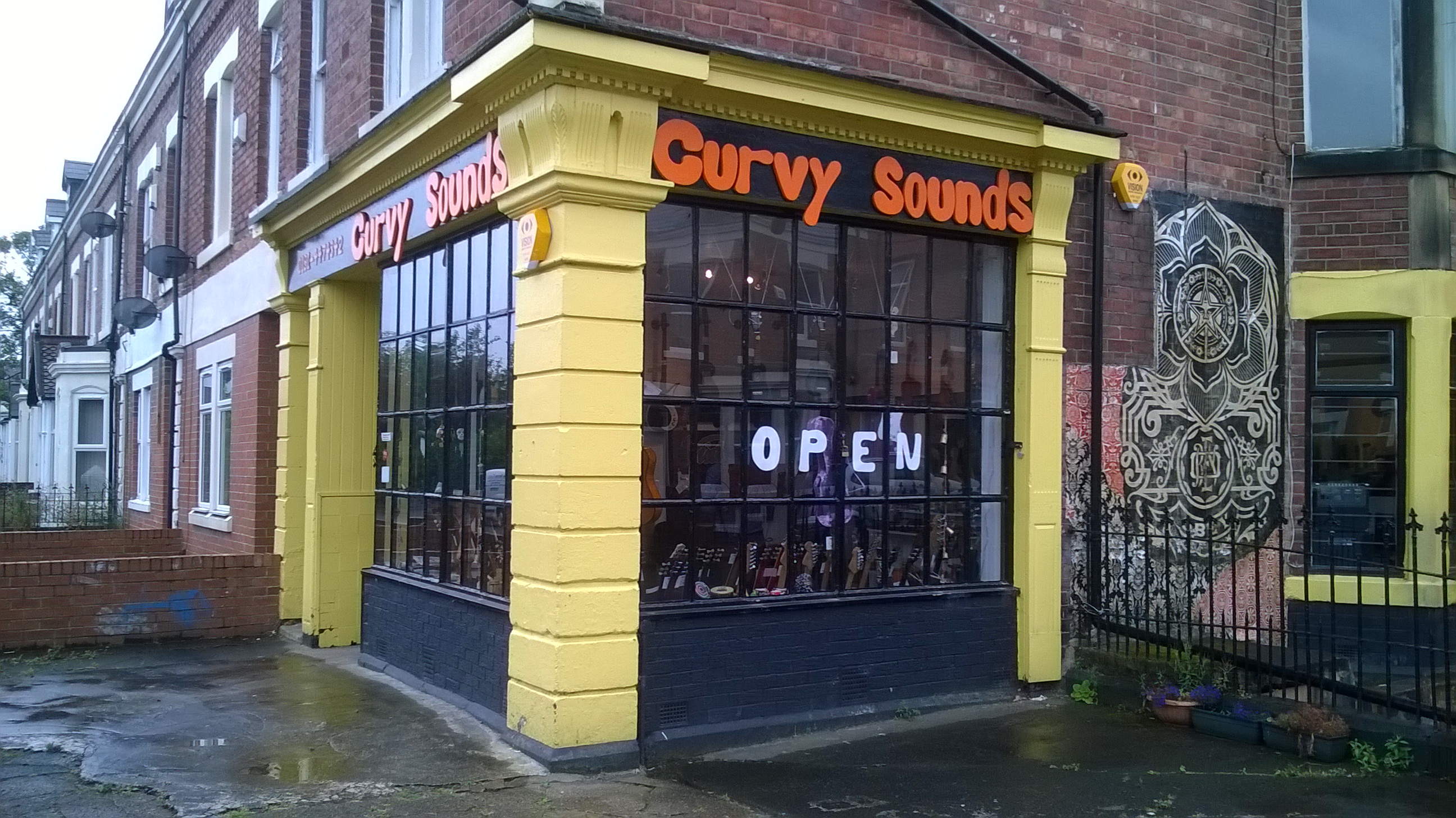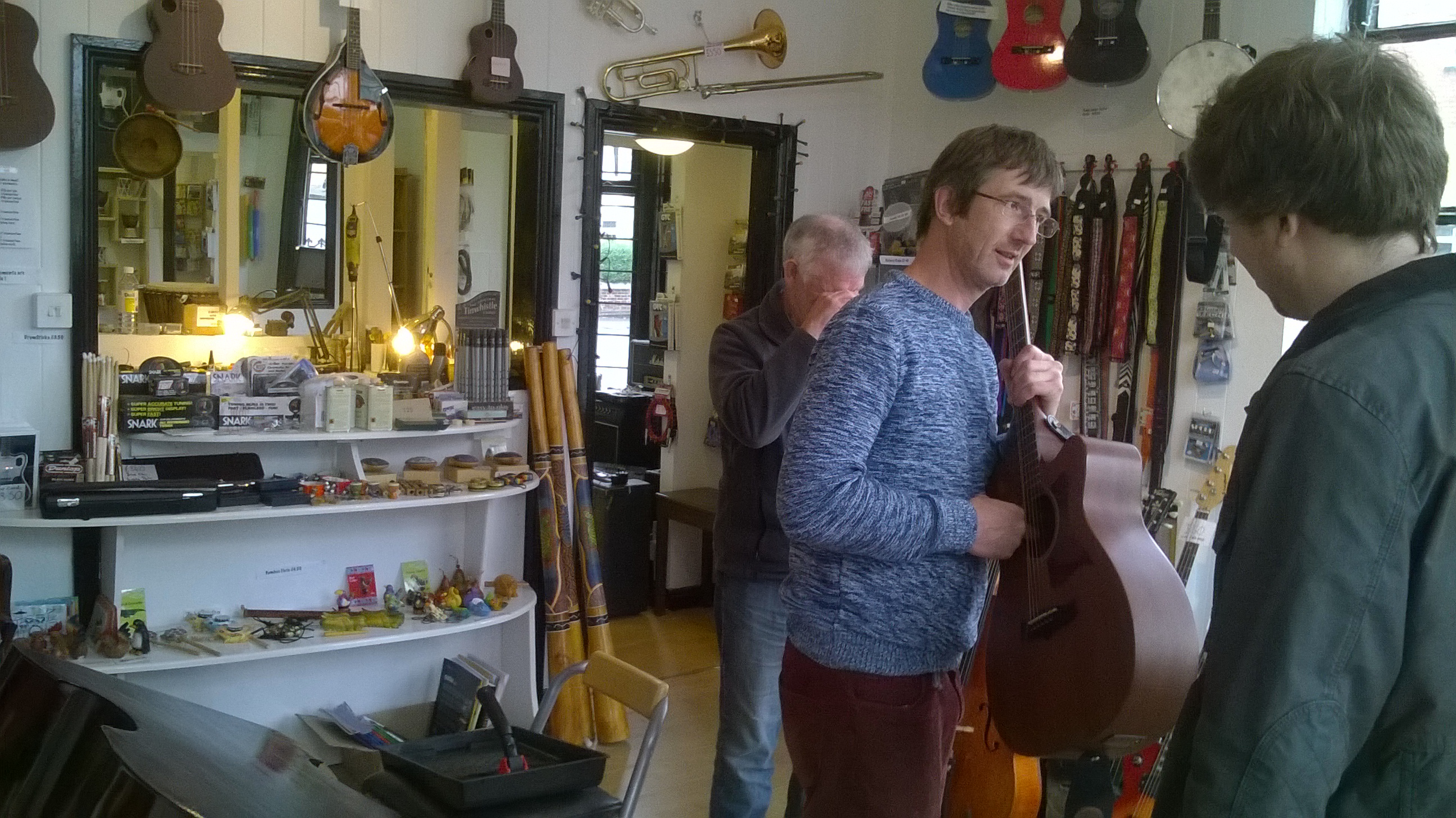Curvy Sounds is a brilliant little independent music shop in Heaton Hall Road (junction of Falmouth Road) in Newcastle upon Tyne. I found it through an ad in The Crack, the local listings magazine, but probably wouldn’t have discovered it otherwise even though I live just down the road. Andrew Mills, the owner and manager along with his wife, is an amiable chap with expertise of instrument repair and related technical matters to a high level (he actually had proper training). The shop is an Aladdin’s cave full of instruments of all sorts, guitars, banjos, mandolins, etc, and many colourful ethnic ones including lots of percussion.
The shop is also one of the few in Newcastle/Gateshead that sell second-hand instruments and there are usually many tempting bargains on offer. I recently part-exchanged an old Yamaha acoustic guitar for a newer Ozark and was not disappointed, especially as Andrew sorted out some problems with the pick-up. Recently I brought in my guitar-banjo for possible part-exchange but, as yet can’t make up my mind. Both instruments (mine’s a Tanglewood and Andrew’s is an Ozark – by coincidence) are listed at around the £200 mark and each in good condition. The Ozark has a shorter neck, is lighter in weight and sounds rather more like a real banjo than mine. Though pretty cheap both instruments have a good feel and are easy to play with a nice action. I guess the Tanglewood has some emotional value as it accompanied me to Oklahoma for the Woody Guthrie folk festival but, on the other hand, it’s only a material object and I guess one shouldn’t get too attached.
By the way, there aren’t many guitar-banjos (or banjitars) around – only a few makes. Apart from the two mentioned above the most expensive are Deering (American) – various models, all above $1000. There’s also Gold Tone who do their cheapest (that I found) at £379.95 going up to £819.95. There may be others I don’t know of. Nor have I played many of them. Before the Tanglewood I had a cheaper Chinese banjitar I prefer ‘ganjo’) which sounded rather tinny but was quite well made. To be honest I wouldn’t recommend one of these machines unless you have a clear idea of what you want to play on it – it’s a very personal thing. I find it useful when recording to vary the sound because, though I have both a 4 string tenor banjo and 5 string conventional banjo, I’m not really a banjo player but a banjitar conveys that illusion.


